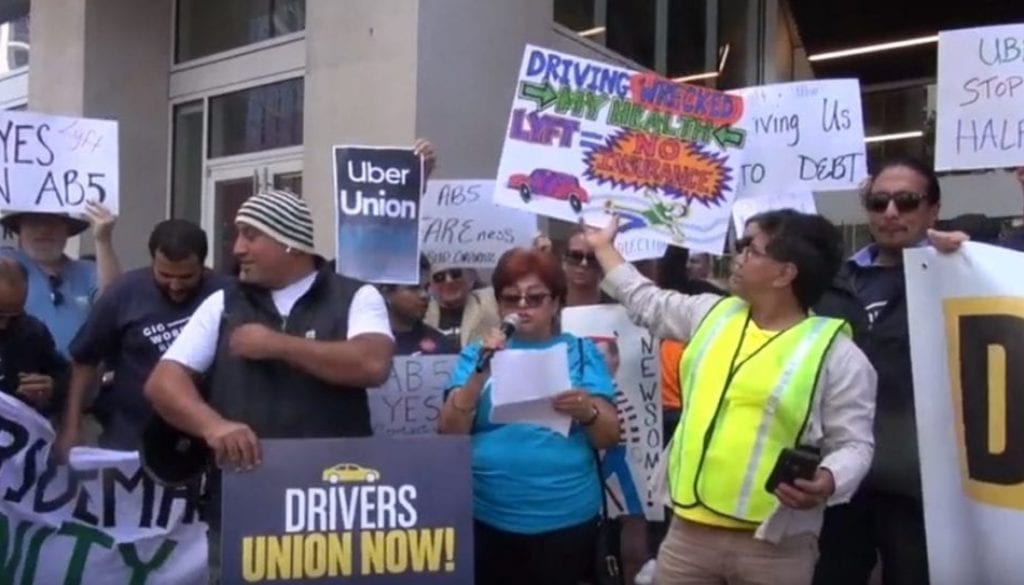California’s AB 5 – What Does It Mean For Your Business?
You’ve likely heard about AB 5, one of the newest California employment laws to take effect this month. As it may have wide-reaching implications for your business, it’s important to understand what it all means.
What is AB 5?
AB 5 amends the California labor code of workers which businesses utilize as independent contractors. Signed into law September 18, 2019 and effective January 1, 2020, the new law requires businesses that use independent contractors to reclassify them as regular employees, or restrict their use.
AB 5 is intended to push employers to provide ‘gig’ workers with the same benefits and protections that regular employees enjoy, including provisions of the California unemployment code, wage and hour code laws, and other benefits. The fallout of the new law, for employers and for workers, may be that many lose their jobs, rather than be put on the payroll.
Will your business be impacted by AB 5?
A majority of California workers and businesses who are part of the gig economy may be affected by the new law, but organizations in other parts of the country that leverage the talents of California independent contractors will also feel its impact. An estimated 10% of US workers are part of the gig economy: over 1.5 million are Californians. Under the legislation, any worker previously categorized as an independent contractor will need to be hired or released, unless they are specifically exempted under the law.
Initial response from ride-share giant Uber and food delivery Postmates has been a lawsuit filed in US District Court alleging the law unconstitutional. Until that decision has been made, however, many classifications of workers are covered under the law, while others, some with significant lobbying power, are excluded:
Physicians, dentists, podiatrists, psychologists, veterinarians are exempt from the law, but other categories of health providers including occupational and speech therapists, optometrists, nurse practitioners, physician assistants, marriage and family therapists and others are impacted by the law. Transcriptionists are already seeing clients refusing to work with California contractors because of AB 5.
Real estate and insurance agents are exempt, along with lawyers and investment advisors. However, freelance journalists and photographers are limited to 35 submissions per year under the new law. The fallout for freelance writers has already begun. Online freelancer platform ‘Scripted’ suspended accounts for California writers. ‘Vox’ let go of 200 freelance writers in advance of AB 5’s effective date.
While truck drivers were initially covered under AB 5, a Los Angeles Superior Court judge has ruled the legislation unlawful because it contradicts Federal law that covers owner-operators.
Several other categories of workers and industries are exempt from compliance, leaving the remaining gig workforce not specifically listed covered under its terms. For businesses owned and operated in California, along with workers who reside in the state, AB 5 remains in force unless legal challenges overturn it. If your organization uses independent contractors for web administration or tech support, or other categories of work, it might be wise to review the law and its impact on your business and contractors.
Legal basis for the new law
AB 5 leverages the ruling of the 2018 California Superior Court decision in Dynamex Operations West, Inc. to classify workers versus independent contractors. Under existing California law, a three-part test is used to determine if a worker can be legally classified as an independent contractor. This ‘ABC test’ requires they:
- are free from the control and direction of the hiring company;
- the worker must be able to determine when, where and how assigned work is performed
- perform work outside the usual course of the hiring entity’s business
- contractors don’t perform the necessary and daily functions of the organization; and
- are customarily engaged in that trade, occupation, or business
- the contractor has performed the work previously and/or has other clients for which they have or perform the same work.
The implications of AB 5
For organizations outside California, the bill may not seem to have implications. But if any Californians are part of a company’s pool of workers, AB 5 will apply. The legislation covers workers and employers. While there are many exemptions and nuances to the law, businesses will need to assure they are in compliance unless and until any pending lawsuits make significant changes to the legislation.
If your contractors don’t pass all three requirements of the ABC test, you’ll have three choices: put them on the payroll as a regular employee; release them from your contract, or, under some categories (like writers), limit the amount of work they submit on an annual basis.
People Person will continue to provide you with updates to AB 5 as they arise. In the meantime, we strongly recommend that you engage your HR team and employment attorney to ensure that your business is in compliance.



